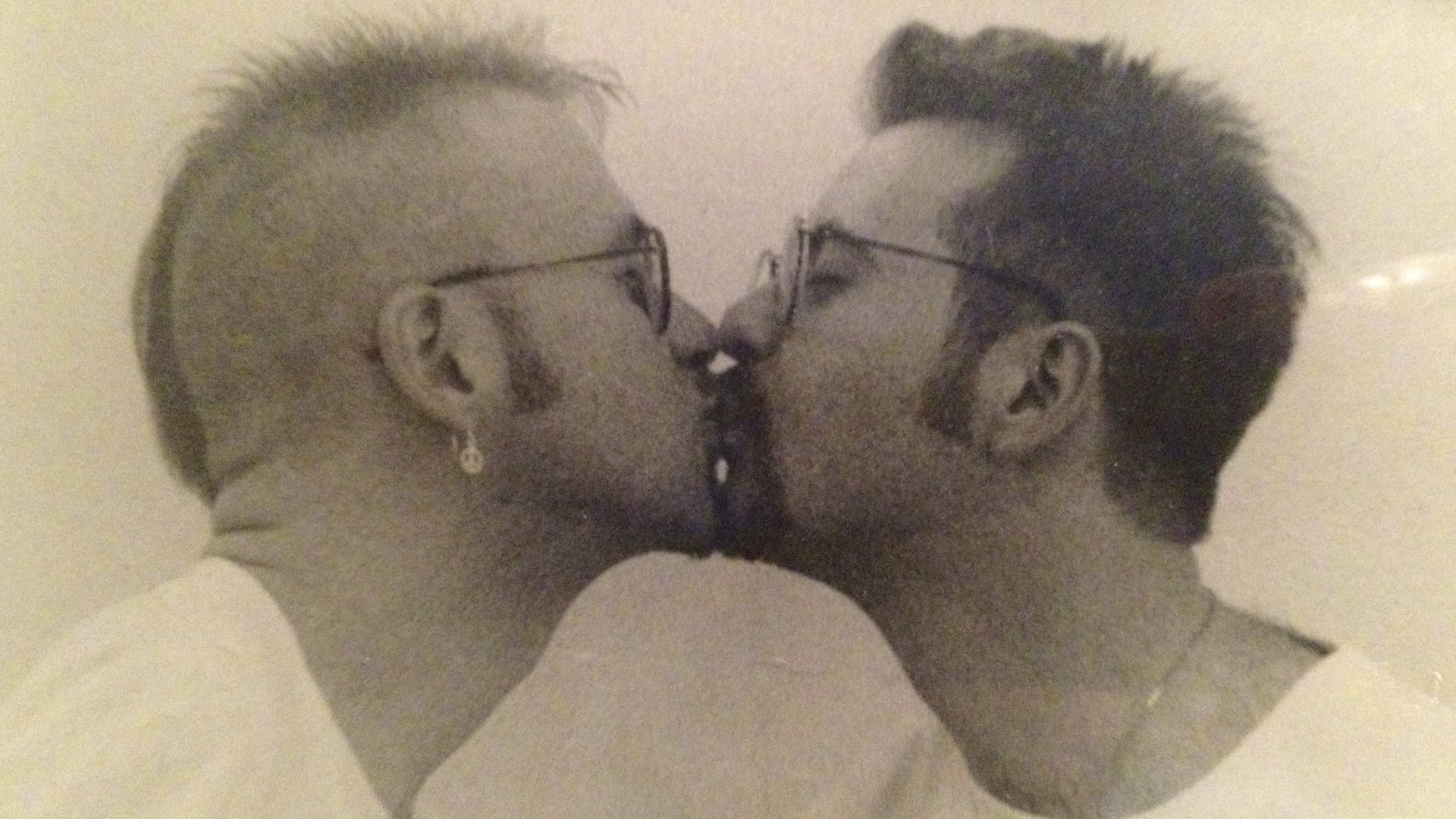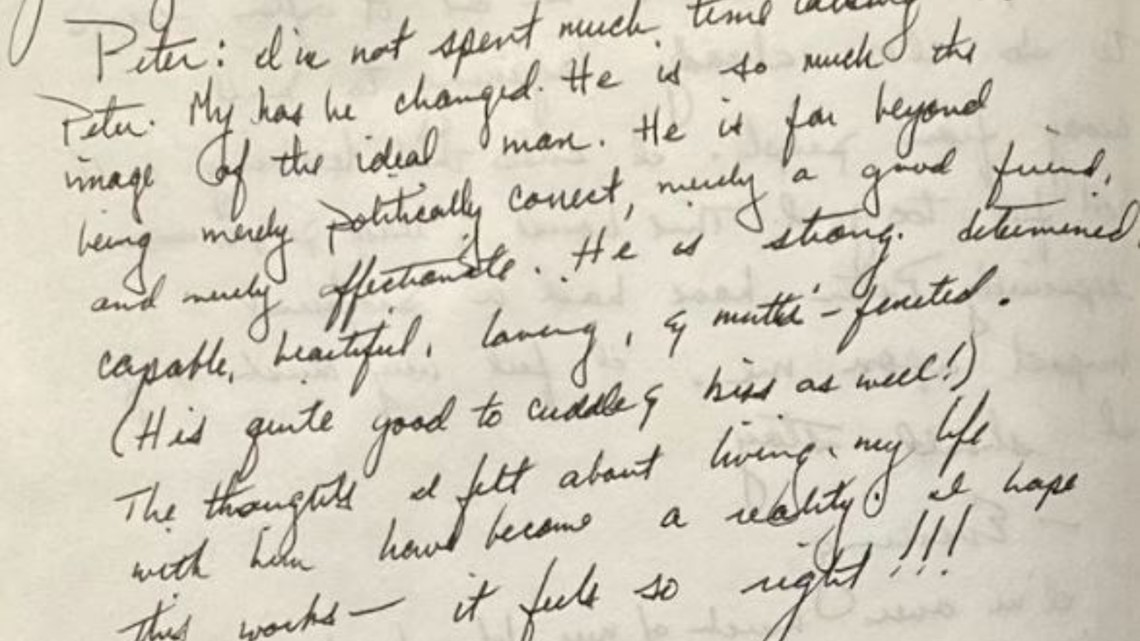His husband woke up, couldn’t feel his legs and died in his arms. Now he fights to get a blood ban lifted in honor of his partner.
Jeff Graham and his husband have been at the frontlines of issues facing gay men since the 80s. But he is now in the battle to eliminate the blood ban alone.

Since the rise of America's AIDS epidemic in the 80s, the FDA has banned men who have sex with men from donating blood. The rules have slightly been modified over time, but many believe the stipulations are based in bias. This is Episode 3 of a three-part series that explores the history of the blood ban, and the efforts to end it.
A lifetime of love begins
Jeff Graham made the decision to give a new relationship a serious shot on New Year's Eve more than 30 years ago.
His partner, Peter Stinner, asked if he would move to Atlanta with him so they could spend their lives together.
"My immediate response was I laughed, and I said, 'why would we want to ruin a perfectly good friendship by changing the dynamic of our relationship?'" Graham recalled.
That same night, he later turned to Stinner, finally telling his beloved, "we need to give this a try."
It's when the two twenty-somethings would officially start their love story.
"That was our magic moment," Graham said.
His Jan. 4, 1989 journal entry encapsulates the enchantment of that initial spark:
"I’ve not spent much time talking about Peter. My has he changed. He is so much the image of the ideal man. He is just far beyond being merely politically correct, merely a good friend, and merely affectionate. He is strong, determined, capable, beautiful, loving, and multi-faceted. (He’s quite good to cuddle and hug as well!) The thoughts I felt about living my life with him have become a reality. I hope this works – it feels so right!!!"


It was the beginning of what would become a lifetime of love.
"We were together for 32 years. We were friends for close to 38," Graham said.
Graham and Stinner tied the knot on Jan. 4, 2014 on their 25th anniversary.
In the fight together
The couple has been working on the forefront of issues facing gay men for nearly four decades, with Graham working with an HIV advocacy program called AIDS Survival Project and Stinner working for an HIV testing program called Mercy Mobile — now known as Mercy Care Services.
"These were the roles that we played. I was the advocate. He was the medical educator," Graham said.
The couple pushed to overturn the Food and Drug Administration (FDA) ban on gay and bisexual men from donating blood.
"If it was that all people who had been sexually active need to be abstinent for 12 months or six months or three months, that's one thing, but that's not what this has ever been," Graham said.
The FDA issued an "indefinite deferral" of blood donation for men who have sex with men in 1985, creating a lifetime ban against donating blood for gay and bisexual men even if there had only been one sexual experience any time after 1977.
In updated blood donation guidance from the agency released in 2020, the FDA said, at the time, the ban was implemented "due to the strong clustering of AIDS illness and the subsequent discovery of high rates of HIV infection in that population."
"There were a lot of heterosexual friends, peers that were incredibly sexually active as young people, but there were no bans on them," Graham said.
In December 2015, the administration announced it was relaxing restrictions again, allowing men who have sex with men to donate blood after they've remained celibate for a full year. The FDA loosened the restrictions even further in 2019 due to a critical shortage of blood amid the COVID-19 pandemic, condensing the deferral period before donating to three months.
While the initial indefinite ban on blood from gay and bisexual men emerged during a decade when HIV wasn't understood and many who were diagnosed with the virus did not survive, restrictions and celibacy requirements still remain after over 30 years.
"When it really stopped making sense was when I got into a committed relationship with the man who would eventually become my husband. That's when that sense of loss and, frankly, that sense of anger started to rise," Graham continued.
The worst blood shortage in over a decade
The American Red Cross reports it is currently experiencing its worst blood shortage in over a decade. The dangerously low blood supply levels have forced some hospitals to defer patients from major surgeries, including organ transplants.
According to the Red Cross, just one pint of blood can save up to three lives. But as the FDA celibacy requirement for men who have sex with other men persists; over 4.2 million Americas are currently forbidden from making lifesaving blood donations.
"In my own practice, I have many, many gay couples who are men whose blood I would take in a heartbeat. They are in long-term relationships. They're monogamous," Dr. Melanie Thompson, co-chair of the HIV Medicine Association, said.
Thompson believes the FDA "hasn't followed the science" after all these years.
"As we have learned more and more about diagnostics to detect HIV, the science of blood donor screening hasn't kept up," Thompson said.
In the past two decades, there hasn't been a single transmission of HIV from blood donations, according to the Center for Disease Control.
"We would really be able to meet the needs of the population whose lives depend on having blood transfusions. If we open up a little bit more," she continued.
Facing the battle alone
Stinner fell severely ill in 2021. He had been battling several gastro-intestinal issues since birth, including diverticulitis and chronic kidney stones, Graham said.
Graham lost Stinner one morning in August of 2020.
"Went to wake him up one morning and he just said he couldn't feel his legs," Graham said.
In the midst of their conversation Peter collapsed, dying in Graham's arms.
Graham now fights to get the blood ban lifted in honor of his greatest love.
"I know it would make him happy, and I think he'd probably start off by being second in line to donate blood. I would be first," Graham said.
Graham said he misses Stinner every day, but he'll carry the couple's tale of love along with him forever.
"I grew up with the AIDS epidemic, so grief is nothing new to me," Graham explained. "But the grief of losing a spouse. It's a different -- it's a different type of grief."
Blood Bias | Watch the full series
Episode 1: 'We have the same blood as you' | Emerging study works to eliminate blood ban for gay, bisexual men

